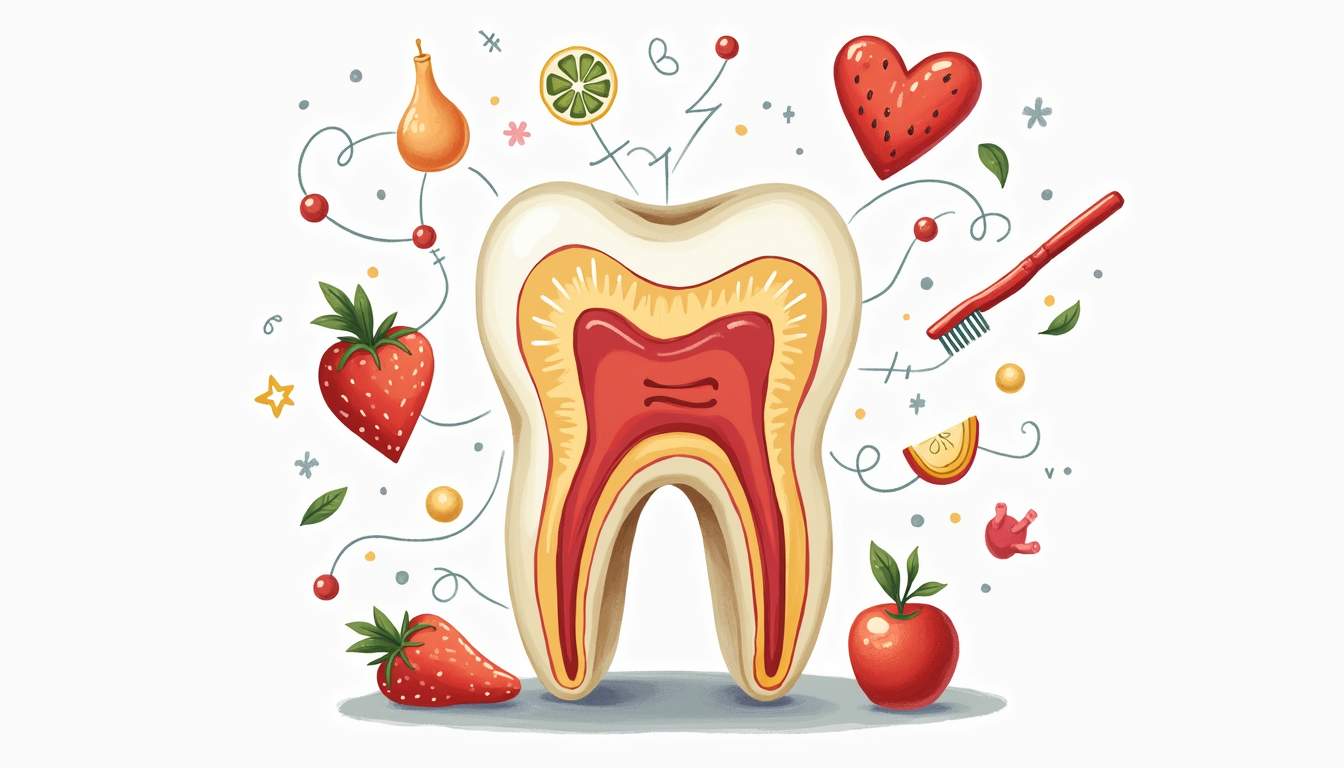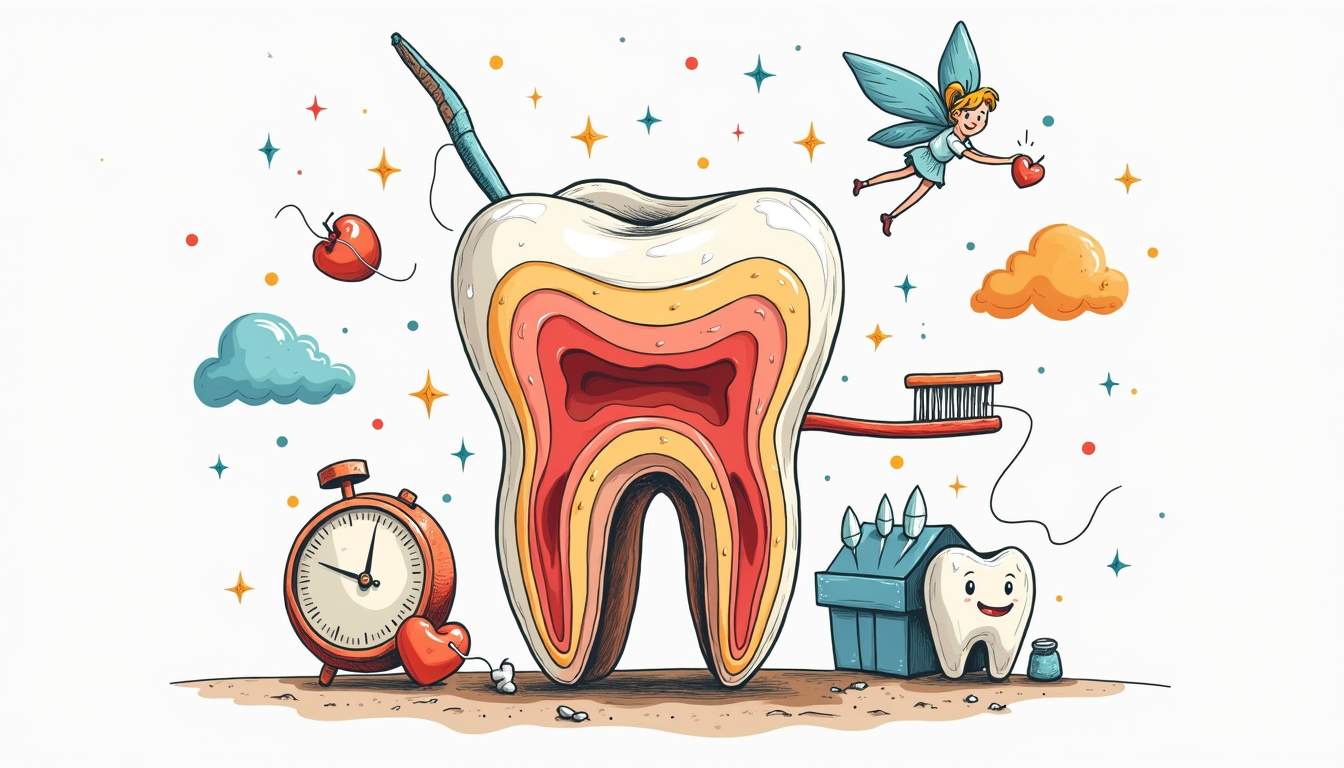

Teeth are more than just a tool for chewing food; they are intricate structures that play essential roles in our health and well-being. This article explores various fascinating aspects of teeth that you may not have known, ranging from their complex structure to their impact on overall health, unusual facts, and the future of dental technology.
The human teeth are complex organs composed of multiple layers, each serving its unique function. Understanding this structure is crucial to appreciating how teeth work and why they are so vital for our health.
In humans, there are four main types of teeth: incisors, canines, premolars, and molars. Each type has a specific purpose.
Each type of tooth plays a critical role in the overall process of digestion, helping to break down food into smaller, manageable pieces that can be easily swallowed and digested. For instance, the incisors are essential for biting into fruits and vegetables, while the molars are particularly important for processing tougher foods like meats and grains. This specialization not only aids in digestion but also reflects the evolutionary adaptations of humans as omnivores, allowing for a diverse diet.
Teeth are not made solely of bone, although they may appear similar. The main components of teeth include:
This unique composition allows teeth to withstand significant pressure during chewing while remaining susceptible to various forms of decay if not properly cared for. Enamel, for instance, is the hardest substance in the human body, yet it can be eroded by acids produced by bacteria in the mouth. This highlights the importance of maintaining good oral hygiene, as neglect can lead to cavities and other dental issues. Furthermore, the dentin layer plays a critical role in tooth sensitivity; when enamel wears down, the exposed dentin can lead to discomfort when consuming hot or cold foods.
Additionally, the pulp chamber is vital not only for nourishment but also for the overall health of the tooth. It contains nerve endings that signal pain, serving as an alert system for potential problems such as infections or trauma. This intricate network of nerves and blood vessels underscores the importance of dental care, as untreated issues can lead to more severe complications, including abscesses or tooth loss. The cementum, while often overlooked, is equally essential as it provides a protective layer for the roots and aids in the attachment of the tooth to the jawbone, ensuring stability during the mechanical forces of chewing.
Teeth do more than just help with chewing; they play a crucial role in overall health. Research continues to reveal the connections between dental health and other aspects of well-being.

Studies have shown a strong correlation between poor oral health and the risk of cardiovascular diseases. Bacteria from gum disease can enter the bloodstream, leading to inflammation and increasing the risk of heart attack and stroke.
Maintaining good dental hygiene—such as regular brushing, flossing, and dental check-ups—can significantly lower the risk of developing serious health conditions beyond the mouth. Furthermore, individuals with existing heart conditions are often advised to pay special attention to their oral health, as the presence of periodontal disease can exacerbate their cardiovascular issues. This highlights the importance of an integrated approach to health that considers both oral and heart health as interconnected.
The process of digestion begins in the mouth, where teeth play an essential role. Properly chewed food allows for easier breakdown by enzymes in the stomach and intestines, promoting better nutrient absorption.
Additionally, unhealthy teeth can lead to difficulties in chewing, resulting in inadequate digestion and potential gastrointestinal issues. It becomes increasingly evident that oral health directly impacts overall digestive health. Beyond just chewing, the act of eating also stimulates saliva production, which is vital for neutralizing acids and aiding in the digestion of carbohydrates. Saliva contains enzymes that begin the digestive process, and without healthy teeth to facilitate proper chewing, this process can be compromised, leading to further digestive complications.
Moreover, the relationship between teeth and digestion extends to the types of food individuals choose to consume. Those with dental issues may avoid hard or fibrous foods, which are essential for a balanced diet, leading to nutritional deficiencies over time. This avoidance can create a cycle where poor oral health leads to poor dietary choices, further exacerbating health problems and highlighting the need for comprehensive dental care as part of a holistic approach to health and nutrition.
Teeth have a rich history and numerous fascinating facts that many might find surprising. From animal adaptations to ancient practices, there’s much more to learn.

Teeth vary significantly across species, adapted to the diet and lifestyle of each animal. For example, herbivores have flat teeth for grinding plants, while carnivores possess sharp teeth for tearing flesh.
Some animals, like sharks, can lose thousands of teeth throughout their lives, continuously regenerating them as a part of their natural growth. This remarkable ability emphasizes the various adaptations teeth undergo in the animal kingdom. Interestingly, the teeth of elephants are also noteworthy; they have molars that can weigh over six pounds and are replaced six times throughout their lives. This adaptation allows them to process tough vegetation, which is crucial for their survival in the wild.
Throughout history, humans have held various beliefs and practices related to teeth. In ancient cultures, losing a tooth was sometimes tied to rituals meant to ensure better growth or to ward off evil spirits.
In many societies, the “tooth fairy” is a popular figure, symbolizing the tradition of placing lost teeth under pillows for a monetary reward. This whimsical practice highlights the cultural significance attached to teeth throughout time. In some regions, children would throw their lost teeth onto the roof of their homes, believing that this act would encourage the growth of stronger teeth in the future. Similarly, in certain cultures, teeth were buried in the ground to symbolize a connection to the earth and to promote the health of incoming adult teeth. These practices reflect the deep-rooted beliefs surrounding dental health and the transition from childhood to adulthood.
Tooth decay, often seen as a common dental issue, results from a complex interaction of bacteria, sugar, and the human mouth’s environment. Understanding tooth decay can help in its prevention.
Tooth decay begins when plaque—a sticky film of bacteria—accumulates on teeth. The bacteria feed on sugars from consumed food, producing acids that erode tooth enamel. This process leads to cavities if not addressed properly.
As time progresses, if tooth decay is left untreated, it can lead to more severe infections and tooth loss. Regular dental care plays a pivotal role in halting this damaging process.
Advancements in dental technology have led to improved preventive measures against tooth decay. Treatments such as fluoride applications and sealants act as protective barriers against decay.
Moreover, initiatives emphasizing the importance of education regarding oral hygiene practices are critical. People now have access to various dental products designed to minimize decay, promoting healthier smiles.
As technology continues to evolve, the future of dental health looks promising. Innovations are paving the way for faster, more effective treatments and a better understanding of oral health.
From 3D printing in creating dental implants to tele-dentistry options, modern technology is transforming dental practice. These innovations allow for more personalized treatments and improved patient experiences.
Additionally, artificial intelligence is gradually being integrated into diagnostics and treatment planning, enabling dentists to make more informed decisions regarding patient care.
Recent research is exploring the incredible potential of stem cells in the regeneration of teeth. The ability to grow new teeth could offer solutions for individuals who suffer from tooth loss due to decay or injury.
This breakthrough highlights a future where dental health could be vastly improved by utilizing the body’s own cells for repair, potentially changing how we approach dental care.
In conclusion, teeth are remarkable structures that serve various functions beyond their apparent role in chewing. By understanding their intricate composition, role in health, and the fascinating facts surrounding them, we can appreciate the importance of maintaining good oral hygiene and embracing advancements in dental care for a healthier future.
Our office is proud to offer the latest in dental technologies to provide you with the best in-office experience.
Complete the form below and a staff member will be in touch with you shortly to schedule your appointment.